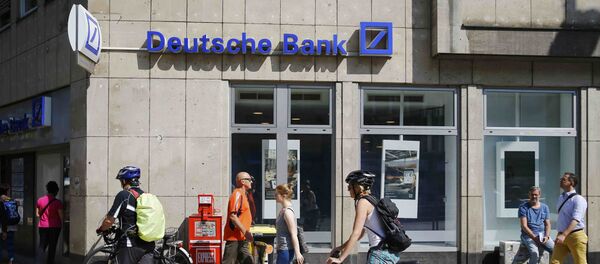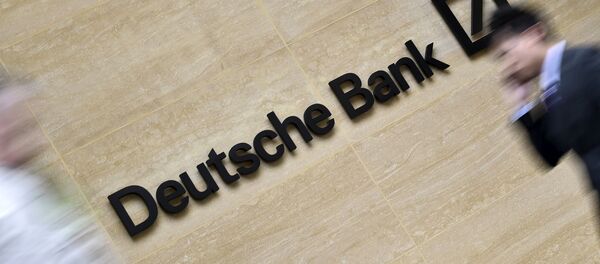Kristian Rouz – Deutsche Bank, one of the world’s top financial institutions and a major donor to the Clinton Foundation and Hillary’s political ambitions, reported an astonishing decline in its annualized profits in 2Q16 as the low interest rates environment and high levels of economic uncertainty coupled with global headwinds affected the bank’s trading and investment-banking operation.
The re-unification of commercial and investment banking has been blamed for diverting funds from the real economy to more profitable stock and fixed-income market operations.
The original Act, which split these spheres, was penned in the aftermath of the stock market crash of 1929 and ensuing collapse of many US banks as a safeguard.
Deutsche Bank AG, a German bank with a strong presence in the US market, saw its yearly profits plunge 98 percent, the bank’s Q2 report says. Net profits plunged to about $22 mln from $880 mln a year ago. Having failed the Federal Reserve’s stress-test last month, Deutsche Bank is poised to implement new cuts in expenditures and might require an injection of capital, as the bank’s stock dropped 5.3 percent following the profits announcement.
"Deutsche Bank clearly has a capital problem," one of the bank’s investors noted.
Currently, Deutsche Bank is in its worst situation since the 2009 recession, and is facing a full-scale restructuring amid bearish sentiments among analysts and market participants regarding the bank’s near-to-mid-term performance. Stakeholders and employees are likely to continue to suffer until the end of next year.
"We have continued to de-risk our balance sheet, to invest in our processes and to modernize our infrastructure. However, if the current weak economic environment persists, we will need to be yet more ambitious in the timing and intensity of our restructuring," Deutsche Bank CEO John Cryan said in a statement.
Another concern is the consequences of the recent Fed stress-test, which the bank failed in June. The US authorities have questions regarding the bank’s possible manipulation of FX rates. While Europe has benefitted from the weaker euro, the rising dollar has concerned policymakers in Washington.
“The immediate risk around the stress test is that the capital market's perception of the group – a distressed equity and credit valuation – is enough to warrant some form of intervention", Barclays, the UK-based bank, Barclays, said in a statement.





